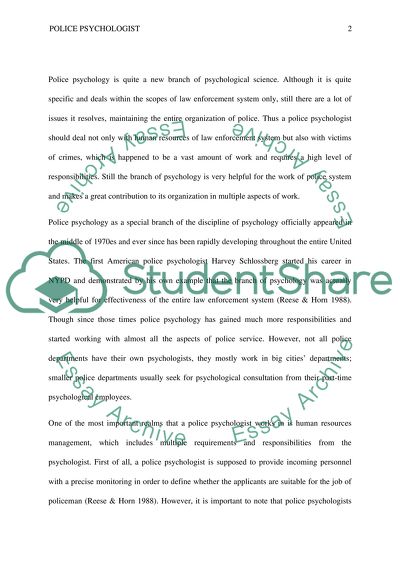Cite this document
(“The roles of the Police Psychologist in the law enforcement Setting Essay”, n.d.)
Retrieved from https://studentshare.org/psychology/1684722-the-roles-of-the-police-psychologist-in-the-law-enforcement-setting
Retrieved from https://studentshare.org/psychology/1684722-the-roles-of-the-police-psychologist-in-the-law-enforcement-setting
(The Roles of the Police Psychologist in the Law Enforcement Setting Essay)
https://studentshare.org/psychology/1684722-the-roles-of-the-police-psychologist-in-the-law-enforcement-setting.
https://studentshare.org/psychology/1684722-the-roles-of-the-police-psychologist-in-the-law-enforcement-setting.
“The Roles of the Police Psychologist in the Law Enforcement Setting Essay”, n.d. https://studentshare.org/psychology/1684722-the-roles-of-the-police-psychologist-in-the-law-enforcement-setting.


